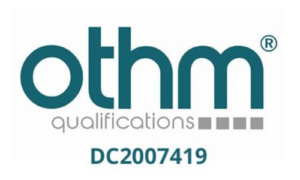Oshtree Training & Consultancy
OTHM Level 7 Diploma in Environmental and Sustainability Management
Qualification Number: 610/3662/6
OVERVIEW
The objective of the OTHM Level 7 Diploma in Environmental and Sustainability Management is intended to develop learners’ understanding of contemporary issues of sustainability, environmental management with the inclusion of ESG in policy, theory and practice.
Learners are provided with an opportunity to understand the current trends in the business world and engage with challenges facing professionals and policy makers in their own country. It provides knowledge that underpins the ability to work as an effective manager or a consultant in the sector.
The qualification offers mandatory and optional units. The aim of the mandatory units is to ensure that all students reach a good level of awareness of environmental and sustainability issues relating to management and develop language and terminology to be able to have an informed conversation with practitioners. The optional units allow students to explore further areas relating to the environment and sustainability in their area of interest.
Learners will develop an understanding of sustainability as a physical phenomenon and its financial and non-financial impact on business performance, governance of private and public bodies, policy making and society. Students will become familiar with key international agreements that are currently driving the sustainability agenda and will appreciate how aspects of leadership and culture impacts change.
Successful completion of this qualification will allow learners to work in a variety of roles within business strategy, consulting roles as well as role in the non-profit sector or government.
ENTRY REQUIREMENTS
These qualifications are designed for learners who are typically aged 21 and above.
The entry profile for learners is likely to include at least one of the following:
- Relevant Level 6 qualification. Normally an Honours degree (or equivalent) from a recognised institution.
- Demonstration of relevant professional experience. Applicants should have at least 3 years professional experience in the field (learners must check with the delivery centre regarding this experience prior to registering for the programme)
English requirements: If a learner is not from a majority English-speaking country must provide evidence of English language competency. For more information visit English Language Expectations page in this website.
The OTHM Level 7 diplomas on the Regulated Qualifications Framework (RQF) are at the same level as master’s degrees. However, they are shorter (120 credits) and learners will have to proceed to the dissertation stage (60 credits) with a university to achieve a full masters programme.
The OTHM Level 7 Diploma in Environmental and Sustainability Management qualification consists of 4 mandatory units and 5 optional units (with candidates taking 6 units in total), 120 credits, 1200 hours Total Qualification Time (TQT) and the recommended Guided Learning Hours (GLH) for this qualification is a minimum of 600 hours.
- Fundamentals of Sustainability (20 Credits)
- Environmental Science and Energy Transition (20 Credits)
- Environmental Management in Organisations (20 Credits)
- Research Methods (20 Credits)
- Delivering Transformational Change (20 Credits)
- Advanced Principles of Net Zero (20 Credits)
- Environmental Politics and Policies (20 Credits)
- Sustainable Finance (20 Credits)
- Sustainability as a Business Strategy (20 Credits)
Achieving the OTHM Level 7 Diploma in Environmental and Sustainability Management qualification enables learners to progress into or within employment and/or continue their further study. As this qualification is approved and regulated by Ofqual (Office of the Qualifications and Examinations Regulation), learners are eligible to progress to Master’s top-up programmes with advanced standing at many universities in the UK and overseas. For more information visit University Progressions page in this website.
All units within this qualification are assessed and internally quality assured by the centre and externally verified by OTHM. The qualifications are criterion referenced, based on the achievement of all the specified learning outcomes.
To achieve a ‘pass’ for a unit, learners must provide evidence to demonstrate that they have fulfilled all the learning outcomes and meet the standards specified by all assessment criteria. Judgement that the learners have successfully fulfilled the assessment criteria is made by the assessor.
Specific assessment guidance and relevant marking criteria for each unit are made available in the Assignment Brief document. These are made available to centres immediately after registration of one or more learners.
The assessor should provide an audit trail showing how the judgement of the learners’ overall achievement has been arrived at.
The qualification is designed to be delivered over one academic year for full-time study, but it is also flexible in its delivery in order to accommodate part-time and distance learning.
The qualification is delivered face-to-face, through lectures, tutorials, seminars, distance, online by approved centres only.

